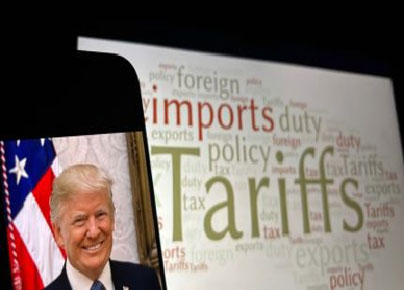Guatemalan exporters await negotiations for possible tariff "adjustments"
2025-04-11

Under President Donald Trump, the U.S. government has imposed a 10% tariff on imports from Guatemala, similar to tariffs applied to other countries in the region as part of the U.S.-Central America-Dominican Republic Free Trade Agreement (DR-Cafta), which took effect on April 5. The tariff for Nicaragua was set at 18%, effective April 9.
Annually, approximately 590,000 twenty-foot equivalent units (TEUs) of Guatemalan products are shipped to various U.S. ports, with six key ports handling 60% of this cargo, according to data from the Guatemalan Exporters Association (Agexport) that utilizes the Panjiva system and reports from U.S. ports. The Port of Hueneme in California, which ranks among the top ten U.S. ports for handling automobiles and fresh products, primarily receives perishable goods such as bananas, melons, fruits, and vegetables.
According to a recent executive order signed by President Trump, merchandise in transit before 12:01 a.m. on Saturday, April 5, will not be subject to the new tariffs. However, goods shipped after this deadline will incur the new 10% tariff.
In 2024, Guatemala's total exports to the United States reached $4.614 billion, and producers and exporters have estimated that the tariff will cost approximately $461 million, based on the 10% rate.In 2024, the country exported fresh bananas and plantains for $985.3 million and fresh melons, watermelons, and papayas for $248.3 million (based on Free On-Board values)
Bananas, sugar, and coffee are Guatemala's three main exports to the United States, accounting for 18% of the country's total exports. The textile sector has the highest sales in the U.S. market, generating $1.617 billion.
Exporters and agricultural organizations in Guatemala have raised concerns that the new measures implemented by Donald Trump's administration will directly impact rural jobs. They have called on the Guatemalan president, Bernardo Arévalo de León, to take steps to maintain competitiveness and facilitate trade.
These concerns arose after Trump intensified his trade war by imposing a global tariff of 10% on all imports, with tariffs of 34% on products from China and 20% on those from the European Union.
Another agricultural sector in Guatemala that may be affected by these tariffs is avocados, which received its first export permit to the United States this year. It is estimated that by 2025, Guatemala will export around 1,700 metric tons of avocados valued at $14.5 million to the U.S. However, industry representatives warn that the new tariff could disrupt the production chain for this premium fruit destined for North America.
Guatemalan business leaders are increasingly concerned, as markets in major U.S. cities expect Central American producers to absorb the costs of the 10% tariff imposed by Trump this week.
In response, the Guatemalan Ministry of Economy stated that it is analyzing the potential effects of the tariff on each productive sector and will monitor market behaviours.









